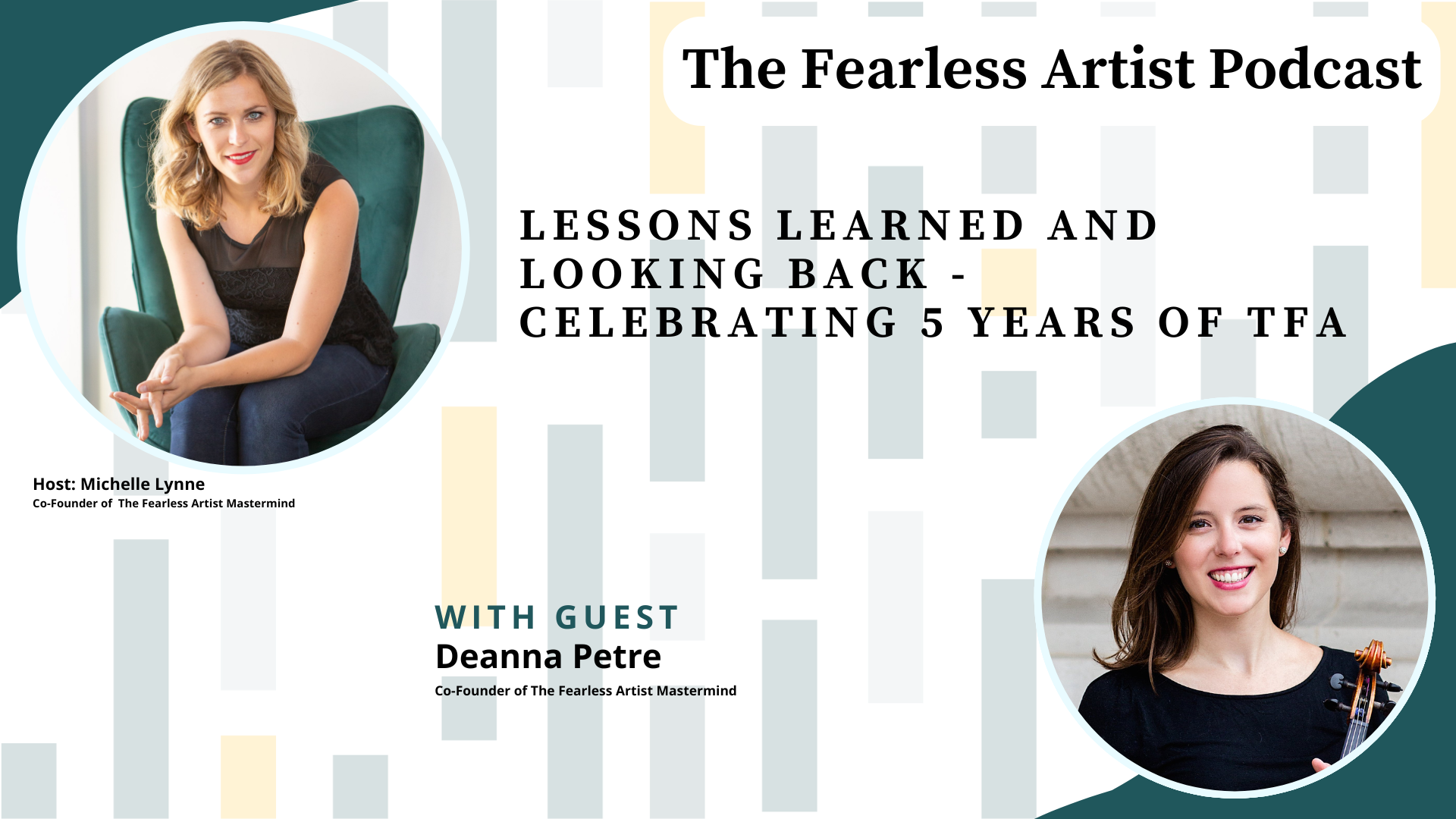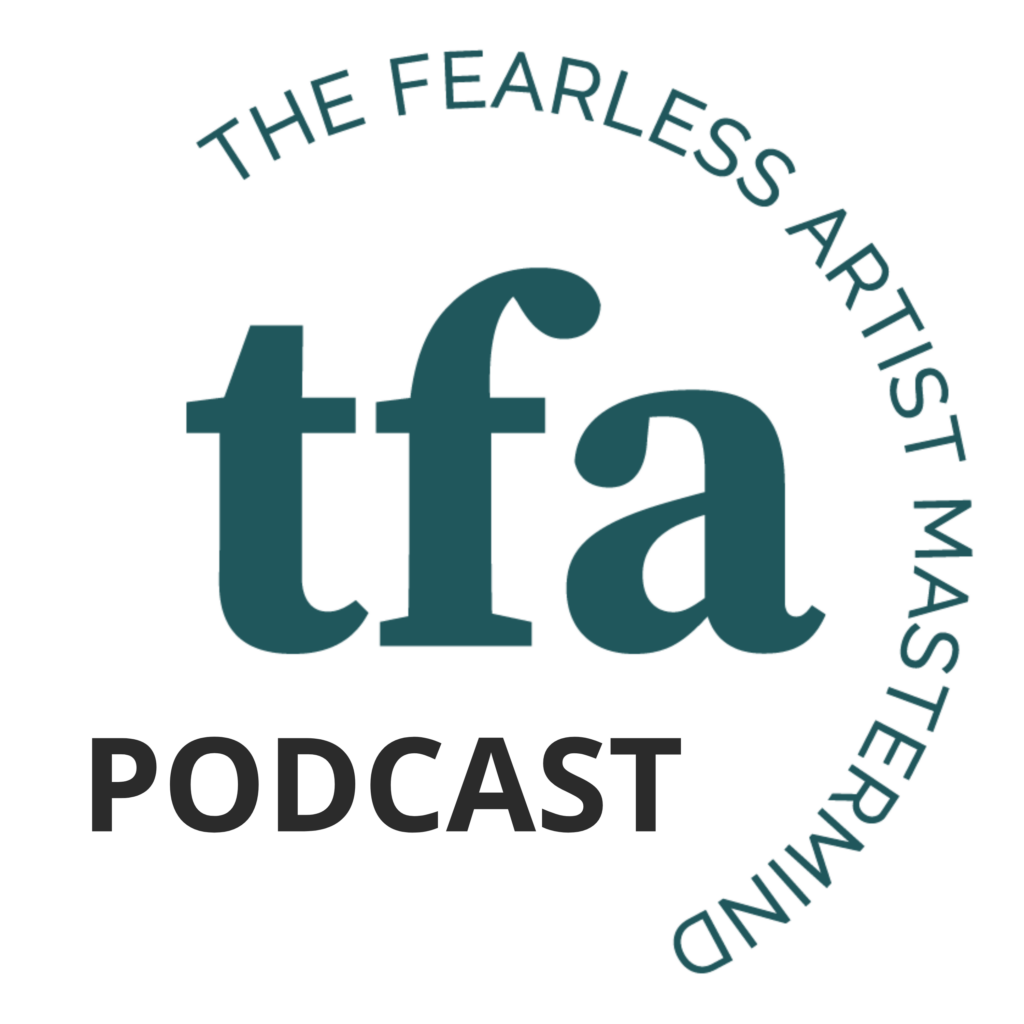Lessons learned and looking back – celebrating 5 years of TFA

Guest:
Cory Barger
Co-Founder of The Fearless Artist Mastermind
Deanna Petre is an American violist fortunate to be living in Paris, France. She is a freelance orchestral and chamber musician and holds a small private teaching studio. As a proud co-founder of The Fearless Artist Mastermind, she emanates a calm, positive leadership style and her deep compassion for others helps her serve The Fearless Artist community. She believes in the importance of emotional well-being in our lives as musicians – a career path that requires continual determination and resilience. Deanna is a graduate of the Juilliard School, the Cleveland Institute of Music, and the Conservatoire National Supérieur de Musique de Paris. She loves traveling and being a mom to two beautiful boys.

Subscribe to The Fearless Artist Podcast
Intro/Outro music by Michelle Lynne • Episode produced by phMediaStudio, LLC
